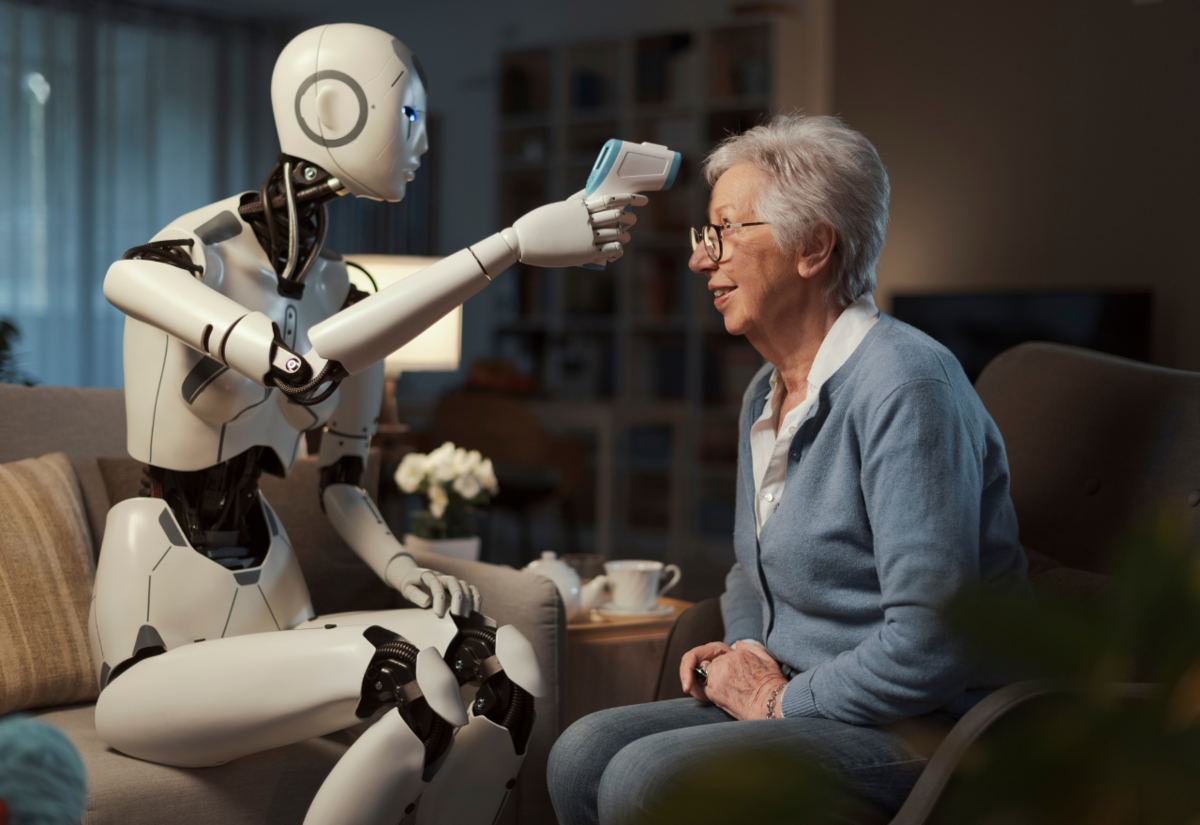Time for Australian aged care to catch up on artificial intelligence
18 April 2025, 10:01 PM

From robots to smart toilets and metallic exoskeletons, Artificial Intelligence and technology have the potential to revolutionise aged care in Australia, because it’s already happening around the world, according to a leading tech expert.
That was the message from scientific futurist Dr Catherine Ball, who highlighted the opportunities AI presents in improving care, efficiency, and safety for both residents and staff in aged care.
“As they [new technologies] come into the healthcare industry, you don’t want to be on the back foot of this,” Dr Ball said.
Speaking at Ageing Australia’s recent ITAC conference in Melbourne, Dr Ball pointed to her current work with AI and robotics in the mining sector, where robots are being deployed in deep-ground operations to eliminate the risk of human fatalities.
She suggested that aged care could also benefit from AI-driven innovations in the near future to reduce risks and improve working conditions. Using technologies in this way could quickly become the norm.
"Because the Workplace Health and Safety Act states that if there’s a known and available technology and you didn’t use it, you’re liable,” said Dr Ball, who is also a robotics expert.
One area of promise is the use of AI-powered exoskeletons to help both carers and older people with physically demanding tasks, reducing injury and fatigue.
The wearable external robotic device is taking off in countries like Japan and South Korea. They, too, are facing rapidly ageing populations and are investing significantly in AI and technology to support older people.
Japan has been at the forefront, said Dr Ball, adding that Australia should look to countries in the Asia-Pacific region for inspiration rather than relying on "tech-bros" in Silicon Valley.
"Communities in the Asia-Pacific have so much to teach us," she said.
While aged care remains an incredibly complex sector that is heavily regulated, Dr Ball said that existing frameworks in Australia are not a barrier to adopting new technologies and "regulation and legislation don’t stymy innovation."
Instead, the key challenge is understanding where AI can add the most value. "We don’t know what the problems are in your sector that AI can help with," Dr Ball said.
Also speaking at ITAC, Ageing Australia CEO Tom Symondson said the sector risked being left behind if innovation was ignored.
"AI won’t take your job, but someone who uses it will take your customers," Mr Symondson said, recalling a quote from a recent event.
"Innovation is everywhere. Often the biggest barriers are the ones we impose on ourselves," he said.
He described AI as a powerful tool to support a complex sector run by people who care deeply about the lives of older Australians.
Mr Symondson pointed to Cooma, a regional town in New South Wales, where council-run aged care services are likely to face severe staffing shortages due to their remote location.
"Imagine how much a place like Cooma would benefit from something like AI?" he said.
He pointed to the recent World Ageing Festival in Singapore and the memorandum of understanding signed between Ageing Australia and Ageing Asia as key steps toward fostering greater collaboration and innovation in the sector.
"You can learn things not just from the person down the road, or the person in Perth, or in Cairns, but from the person in Ho Chi Minh, or in Helsinki, or in Boston," he said.

